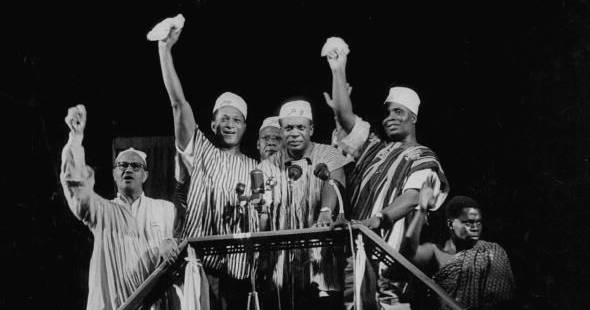On March 6, 1957, the world watched as Ghana, once known as the Gold Coast, emerged as the first sub-Saharan African nation to break free from colonial rule. The celebrations in Accra were nothing short of historic. Delegates from 56 nations joined the festivities, which included vibrant native dances, traditional games, and a beauty contest to crown Miss Ghana. The event marked not just Ghana’s independence but also the dawn of a new era for Africa.
Vice President Richard Nixon and his wife represented the United States at the three-day celebration, underscoring the global significance of the moment. As Ghana’s new army paraded before the nation’s first prime minister, Kwame Nkrumah, and U.S. Congressman Adam Clayton Powell, the atmosphere was electric with hope and pride.
The Rise of Kwame Nkrumah
Long before figures like Nelson Mandela and Thomas Sankara became symbols of African liberation, Kwame Nkrumah stood at the forefront of the continent’s fight against colonialism. Educated in the United States and the United Kingdom, Nkrumah returned to the Gold Coast in 1947 with a vision of immediate independence. His fiery rhetoric and grassroots organizing quickly set him apart from the more conservative elite who favored a gradual transition to self-rule.
Nkrumah’s break with the United Gold Coast Convention (UGCC), the party that initially hired him, led to the formation of his own Convention People’s Party (CPP). The CPP’s slogan, “Self-Government Now,†resonated deeply with the masses, who saw Nkrumah as a messiah destined to lead them out of colonial oppression. His arrest in 1951 for inciting civil unrest only solidified his status as a revolutionary hero.
In a dramatic turn of events, Nkrumah won a landslide victory in the 1951 elections while still in prison. Faced with the reality of his overwhelming popularity, British Governor Sir Charles Arden-Clarke released him, and within days, Nkrumah transitioned from prisoner to prime minister.
A Beacon of Hope for Africa
Ghana’s independence was a watershed moment for Africa. As the crown jewel of Britain’s African colonies, the Gold Coast’s wealth in cocoa, gold, and timber made its transition to self-rule a symbol of what was possible for other colonized nations. Nkrumah’s vision extended beyond Ghana’s borders; he dreamed of a united Africa, free from the shackles of imperialism.
In 1958, Nkrumah hosted the All-African People’s Conference in Accra, bringing together 300 representatives from across the continent. Among the attendees were future leaders like Julius Nyerere of Tanzania, Kenneth Kaunda of Zambia, and Patrice Lumumba of the Congo. The conference ignited a wave of independence movements, cementing Nkrumah’s legacy as a pan-African visionary.
The Descent into Authoritarianism
However, Nkrumah’s leadership soon took a troubling turn. As he consolidated power, his government became increasingly authoritarian. The Preventative Detention Act of 1958 allowed for the imprisonment of political opponents without trial, and by the early 1960s, hundreds of dissidents, including his former mentor J.B. Danquah, were behind bars.
Nkrumah’s economic policies also began to falter. Ambitious infrastructure projects, funded by Ghana’s cocoa wealth, were plagued by corruption and mismanagement. By 1965, the country was deeply in debt, and the standard of living for many Ghanaians had plummeted. Nkrumah’s pan-African ambitions further alienated him from other African leaders, many of whom rejected his calls for a continental government.
The Fall of a Revolutionary
On February 24, 1966, while Nkrumah was on a diplomatic mission to Vietnam, the Ghanaian military staged a coup. The streets of Accra erupted in celebration as Nkrumah’s statues were toppled and his once-revered image was defaced. The man who had led Ghana to independence was now a pariah, forced into exile in Guinea, where he spent his final years writing about his vision for Africa.
Nkrumah’s legacy remains deeply contested. To some, he is a hero who paved the way for African liberation. To others, he is a cautionary tale of how revolutionary ideals can be undermined by authoritarianism and corruption. What is undeniable is that Kwame Nkrumah’s life and leadership forever changed the course of African history.
As Ghana continues to navigate its post-independence journey, the story of its first leader serves as a reminder of the complexities of freedom, the challenges of nation-building, and the enduring dream of a united Africa.


